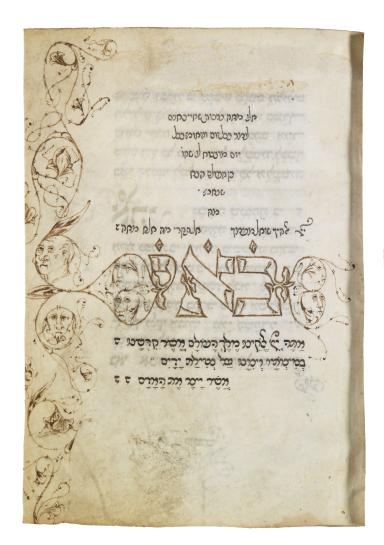Seder nashim (Order of Women): On Obligations
Meir Benveniste
ca. 1565
This is a prayer book for women in Ladino for the whole year, with its order of blessings at the end. And the order for washing the hands and many other laws applicable to all of the most common circumstances.
And at the end, it contains the Hebrew alphabet with the vowel points used in Ladino so that they can set about educating their daughters without the trouble of looking for one. [ . . . ]
Every Jewish man is obliged to direct the males of his house toward the service of the Lord and to warn them and always watch their ways so that they do not fall into a place of sin and crime, as wrote Moses our teacher of blessed memory, saying:
and anyone who does not spare any effort on his wife and his children nor warn them nor always visit the places they frequent until he knows that they are free of all sin, is called sinner, for the verse says and you will visit your home and you shall not sin.(Job 5:24)
And all daughters of Israel are obligated to pray and make a blessing over the things that they enjoy. Many people do not admonish girls and women nor seek to direct or educate them, neither the father his daughter nor the man his wife, so now they [women] now think they are completely free from any obligation. And it is possible that some men do not instruct [women], saying that it is a lot of work for them to learn the letters and the vowels and to understand the language. And some men think that the prayers are long and that women might spend too much time on them, and not be able to care for their children. And the truth is that women are not obliged except for a very few blessings, as you will see from this prayer book. Consequently, in a short time they will have fulfilled their obligation. Also as the numbers [of blessings] are limited, they will learn them quickly; especially as it is written in their language, they will understand what they say, and it will be easier for them to learn more. And from then onward each one will be able to teach his wife and daughter the letters and vowel points, so that they will run through it and each man will be able to instruct his daughter, to teach her a piece each night, and the Holy One will forgive the past and give them merit for the future.
Credits
Published in: The Posen Library of Jewish Culture and Civilization, vol. 5.




